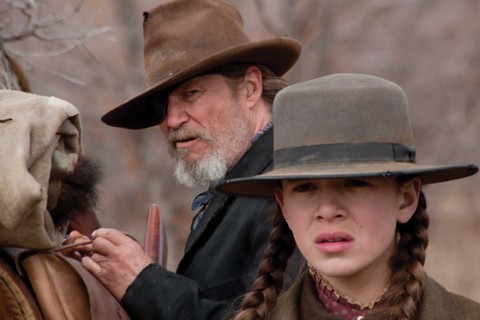True Grit

True Grit is the last thing you'd expect from the movies' most resolutely ironic brother act, the writer-directors Joel and Ethan Coen: a labor of love. They set out to adapt Charles Portis's charming novel faithfully, correcting the errors of the 1969 Henry Hathaway version, a stock western memorable only for John Wayne's performance as the tippling marshal Rooster Cogburn.
Hathaway reshaped the material as a vehicle for Wayne. Portis's book, however, is the story of Mattie Ross, a strong-minded, precocious 14-year-old who hires Rooster to track down her father's murderer and insists on making the journey with him—and with LaBoeuf, a Texas Ranger, in pursuit of the same quarry. The Coens restore the original focus, and with the help of their frequent cinematographer Roger Deakins they imbue it with a storybook quality. Rooster (played in this version by Jeff Bridges), with his permanently sozzled slurriness and his voice stripped down to a dry husk, is the hero of a tall tale, a character who could come fully alive only in a child's imagination.
The movie doesn't begin well. The first set piece, a triple hanging, is presented in the Coens' usual tongue-in-cheek tone, and its jokiness is smugly knowing. In trying to approximate Mattie's weird blend of naïveté and moralizing persistence, Hailee Steinfeld mainly sounds like a scold. But the young actress improves as the movie goes along. Meanwhile the Coens abandon their ironies and cotton onto Portis's eccentric style, a shift that serves as a metaphor for the girl's point of view in her dealings with the grownups, who are thwarted in their efforts to treat her like a child: first Colonel Stonehill (Dakin Matthews), whom she beats down for the price of her father's ponies, then Rooster and LaBoeuf (Matt Damon). True Grit is as stylized as any other Coen brothers picture, but this time it's Portis's style they're working to emulate.





